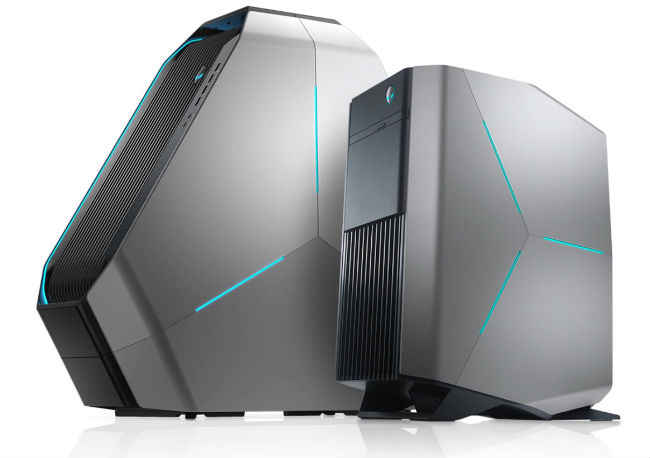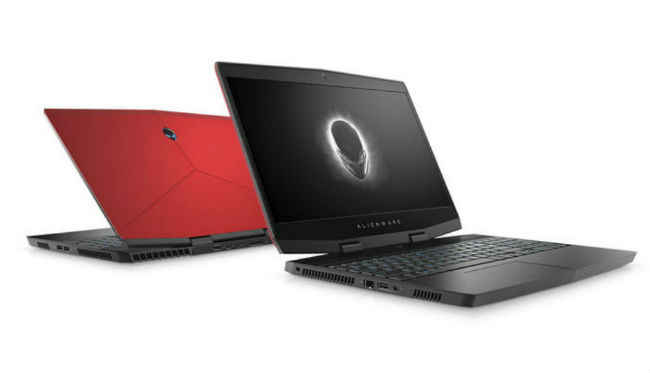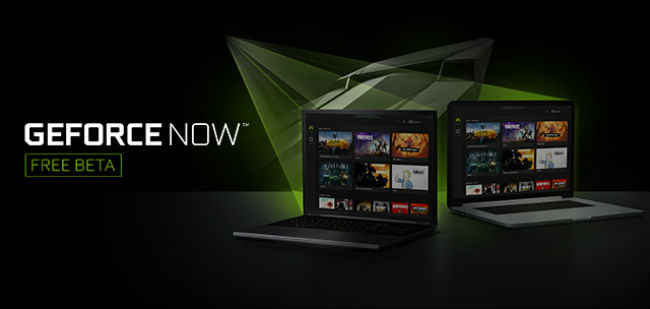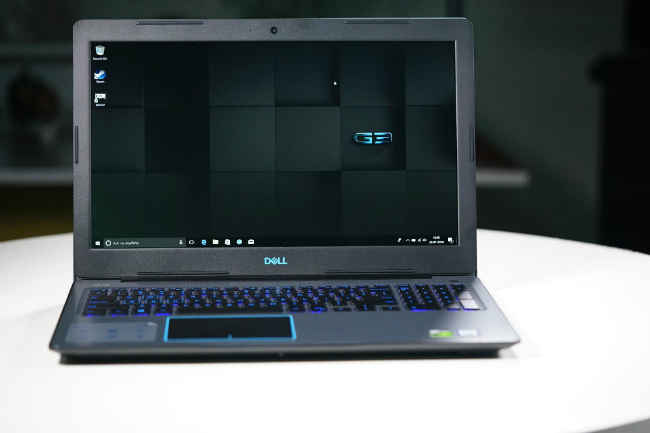Interview: Alienware Co-Founder Frank Azor tells us how ‘The Game’ has changed
We had a chance to sit down with Frank Azor, Vice President & General Manager, Alienware, Gaming and XPS at Dell. We spoke to him about life, the universe, and everything gaming!
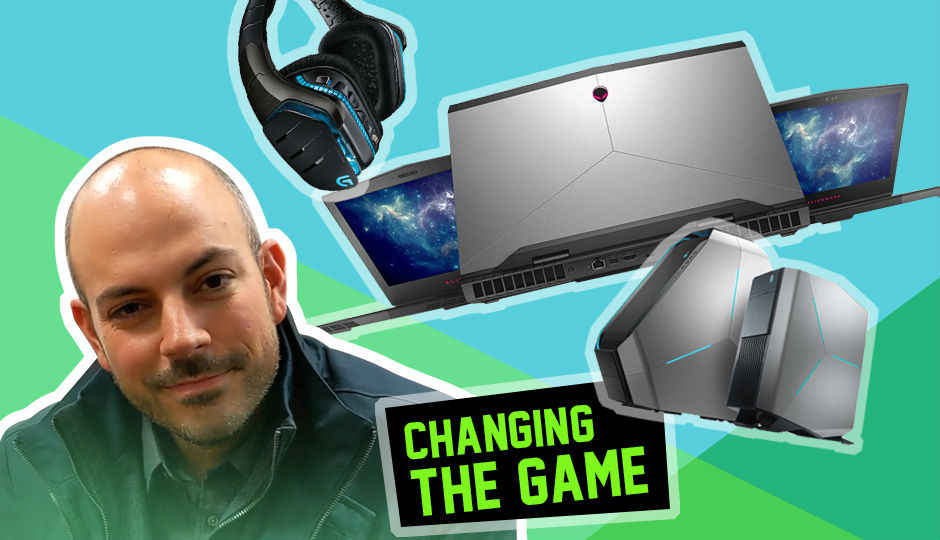
His first gaming memory is that of playing Prince of Persia at the age of 7 or 8 on a computer at a RadioShack. What he was most amazed and impressed by were the graphics of the 8-bit game. It may not sound like much in a day and age of 4K gaming, but that very passion for PCs and gaming is why Frank Azor became an integral part of the PC gaming industry, resulting in the eventual birth and success of Alienware. "The first game I ever played on my own computer was a game called Links 386. It was a graphically intense game which if you saw today you be like this guy is crazy. For back then it was. It was a golf game and I didn’t even know how to play golf. I didn’t know what I was doing. I just wanted to look at the graphics. I was amazed at how these pictures were on this monitor,” recalls Azor, the Co-Founder of Alienware.
 Survey
SurveyToday, Alienware is popularly known as Dell's gaming arm, but the company has an interesting origin story before it was acquired by Dell. Alienware was started in 1996 under a different name and its core business was to assemble and sell gaming PCs. “It wasn’t even called Alienware back then,” says Frank, who is now the Vice President & General Manager of Alienware, Gaming and XPS at Dell. The company started out assembling PCs for those looking for a gaming experience. You have to realise that assembling a PC back then wasn’t as simple as it is today. It was this process of assembling PCs dedicated for gaming that gave birth to Alienware. It was also the founder’s interest in TV show X-files that led to the company being called Alienware and resulted in the birth of the uber recognisable Alien head which has been the company’s logo ever since. Dell bought Alienware back in 2006. Just a fun fact, the gaming business at Dell amounts to $3 billion globally today. To put things into perspective, it is 15 times that of Razer and three times more than the “next competitor”. Sure, monetary figures may not grab the attention of the gamer in you, so let’s start with some fun facts about the gaming company with a logo from outer space.
Above: Frank Azor
We had the opportunity to sit down with Azor and talk to him about the innovations in gaming, Dell's gaming business, portfolio of gaming machines and of course, the first game he ever played! According to Frank the acquisition of Alienware made sense. In our conversation he said that Dell had its own gaming brand under the umbrella of XPS and Alienware could take advantage of Dell’s sheer size which helped with economies of scale, global footprint, engineering capabilities, design capabilities and more. For some time, XPS gaming and Alienware co-existed before the XPS line of gaming products were discontinued.
Alienware, as a gaming brand, has an iconic look and anyone who is remotely aware of the company can recognise it by its unique Alien head logo. This is because as a gaming brand, Alienware has pioneered the mean look associated with gaming PCs today. The Area-51 PC was a beast under the hood. It was driven by three video cards including one for 2D graphics and two 3D cards with 3Dfx's Voodoo PC chip. To ensure you got the best audio, the PC had both Sound Blaster 16 and DirectX 3D audio. That may not sound like much today, but back in 1998 it was a PC to show off.
Alienware's current desktop lineup
It was in 2003 that Alienware introduced the Area 51 Predator 1 – the first gaming PC to don the now defining Alien head design aesthetics out of a sci-fi movie. Speaking about innovation in gaming PCs, Frank says that the company invests more in design, and things like its command centre software today. To remain relevant the company needs to innovate. Alienware was responsible for a lot of firsts in the gaming industry. The first liquid cooled gaming PC, and the first gaming laptop to name a few. But as the gaming market grew we have seen a lot of innovation from a number of gaming PC manufacturers. Sure, Alienware has kept up with the demands of cutting-edge specs under the hood of a beastly looking machine but the trend is changing. Thin and light is the name of the game and companies like Razer and Asus are gunning for the label of the worlds thinnest PC. Alienware took a slightly different approach.
Recently the company announced the Alienware m15. The gaming laptop isn’t the slimmest there is but it is the slimmest and lightest gaming notebook that Alienware has produced. Talking about the design changes with the m15 Frank says that this is a drastic change in design for the 15-inch laptop.
Above: The new Alienware m15
It was a cross pollination of the design, and engineering capabilities of the XPS team with the Alienware team, he says. The company took the masterminds behind the thin and light design of Dell's XPS brand and married that design language with the power of an Alienware laptop. “Expertise around thermal design, component placement, motherboard design, and with the XPS’ focus on being thin and light, applying that focus on shrinking the form factor without compromising on the performance” is how Frank describes the design language of the m15.
The m15 is indeed a smaller machine when compared to Alienware’s 15-inch offerings. But if you are one that doesn’t want to drop the money that’s required for an Alienware, or don’t want an aggressive looking laptop to stand out in your office, then Dell has you covered.
It was just Alienware for gaming at Dell for a long time, Frank says. He added, customers wanted an Alienware product but couldn’t afford it. Frank says that the company did ponder on whether to reduce the price of an Alienware but didn’t want to compromise on the offerings of the Alienware brand. He explains that a decision was made to come up with other offerings to compliment the Alienware brand. According to him, “The Dell G series for example doesn’t give all the bells and whistles you’d get with the Alienware. But you get a performing gaming notebook.” He further tells us that the company took an interesting approach with the design. It was a conservative design, not as flashy as gaming notebooks because customers demanded a subtle look for work/school and gaming.
When talking about the future of gaming, it looks like cloud gaming may be the next big thing. Frank laughs and talks about how services like OnLive and Gaikai were supposed to dominate the world. I see a slight smirk on Frank's face as he talks about this. But on a serious note, he says, “Cloud gaming has a place in the overall industry. I don’t think it is going to replace consoles. I don’t think it is going to replace PCs. As long as the internet remains a volatile place, in terms of latency, traffic, and all the other variables that affect online gaming performance it is going to be hard for cloud gaming and streaming to become a true substitute for the traditional model of how we play today. However, there are games that aren’t so latency dependent. Those games can be played in a streaming kind of model at least until the gamer gets very serious about the game at which point they are going to make the investment in playing the game locally back on the PC. Some days the experience is good and seamless and some days it isn’t” (for cloud gaming).
Geforce Now is NVIDIA's cloud gaming initiative
“Consider the different factors. Streaming isn’t going to become a replacement, but it is good for those that want to try out a game or get into a game. I look at cloud like I look at mobile gaming like, I look at tablet gaming, and even console gaming. It is just another platform that offers an opportunity to feed into the ultimate gaming platform which is PC gaming,” he adds.
Calling PC the ultimate gaming platform did strike a nerve in the console gamer in me. I asked Frank the ultimate question – Consoles vs PC. I know the man heads the biggest PC gaming business in the world. But does the PC gamer have a soft spot for consoles?
To my surprise, frank starts by saying, “I don’t know that there is as much of a war going on anymore.” He does of course throw a curveball then by saying, “When you look at the market, the numbers, the PC has won. It has got the most software, it has the largest install base, it is where majority of the innovation has taken place, and it is where e-sports is really thriving”.
But he does go on to take a neutral approach as he says that the growth of the gaming industry as a whole is healthy for all players, be it mobile, cloud, console and of course the PC. He says “From our perspective, it is less about the device and more about the content. People don’t play devices, they play games. And if the games they want to play are going to be available on a PC, then they are going to buy a PC and if they are available on a console, then they are going to do that. Today there are some great games available on each of those platforms and we find that most of our customers own most of the platforms. They own at least one console to get the console exclusive… and they all have a PC because you need a PC for other purposes to do your homework to surf the internet, for paying your bills, for shopping online. So, if you are going to buy a PC no matter what, the cost of buying a gaming PC is not that big of a burden. Let’s say you are going to buy a $500 PC, just to do your general-purpose computing, you spend $200 more on that and you have a gaming PC…. Even in that regard we are winning in terms of value proposition. But I think what you’ll find is that people follow the games”.
Above: Dell G3
Speaking about games I asked Frank about the trend of big AAA exclusives being on consoles and he disagrees with me. He says, “You made a statement that I disagree with, that all the exclusives are on console. Many exclusives are on console and many are on the PC as well. And not just exclusives, but also, titles that are older but are still being played by 10’s of millions of people are only being played on PC. They aren’t being played on console. For example, look at a title like League of Legends, only available on the PC. A title like PUBG. It came out on the PC months before it came out on a console. You go into titles like Team Fortress 2, CS Go, Starcraft 2, whether they are PC exclusives only or they once came out on console and PC and nobody is playing them on console, but they are playing them on the PC because there is a strong install base and a strong e-sports infrastructure for those types of titles. I think there are plenty of exclusives on all devices, I think there is no death of any one of them emerging anytime soon. I think they are all going to continue to thrive, some more so at times than others. Having multiple platforms, multiple value proposition than others, we have to be smart and know that has to be good for gamers and therefore it is good for the gaming industry. That’s the most important thing any company building products in this category needs to be focused on is how to ensure that gaming thrives because if it isn’t thriving as a whole industry then we can’t thrive within it. We aren’t her to bash consoles, we want consoles to thrive, we want consoles to succeed, we want our customers to purchase consoles. I want customers to play games on their mobile devices. I want customers to play games anywhere they want in their life. Because who is once only a mobile gamer will eventually elevate their experience to be a console gamer which may eventually elevate their experience to become a PC gamer. And the ecosystem and the industry feed’s itself as long as we keep feeding the entirety.”
At the end of my day with Dell I had seen some crazy looking hardware, some brilliant innovation slated for the future and understood how passion can lead to a successful profession.
Sameer Mitha
Sameer Mitha lives for gaming and technology is his muse. When he isn’t busy playing with gadgets or video games he delves into the world of fantasy novels. View Full Profile

